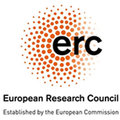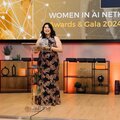Current
News
Events
September
24
Ethical AI: sparking debate in academia
24
Moral Ambition: How Badly do you want to do Good?
25
Workshop
Command line and DelftBlue basics 25 Sepember 2024
October
01
Launch event | Centre for Meaningful Human Control over AI
01
ELLIS Delft Talk by Justin Dauwels
03
PowerWeb conference: AI & Quantum Computing for Energy Systems
03
Climate & AI Workshop Event
07
10








